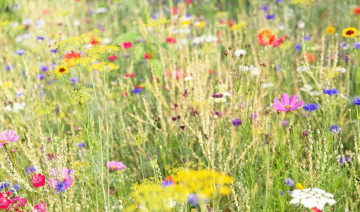{article.name}
Agway, NY -
Hometown Values & Service!
Chatham Agway: 518-392-3241
Claverack Agway: 518-851-5391
Great Barrington Agway: 413-528-2390
Millerton Agway: 518-789-4471
Embracing Native Plants: A Guide to Choosing and Caring for Local Flora

- Share this:
- Share on Facebook
- Pin on Pinterest
- Tweet on Twitter
Native plants offer numerous benefits to our gardens and the environment. They are adapted to the local climate and soil conditions, making them easier to care for and more resilient to pests and diseases. Additionally, they provide vital habitats and food sources for local wildlife, including pollinators such as bees and butterflies. In this blog, we'll explore how to choose the right native plants for your garden and provide tips on how to care for them to create a thriving, sustainable landscape.
Why Choose Native Plants?
- Adaptation: Native plants are well-suited to the local environment, reducing the need for excessive watering, fertilizers, and pesticides.
- Biodiversity: They support local ecosystems by providing food and habitat for native wildlife.
- Sustainability: Native plants help conserve water and reduce soil erosion.
- Low Maintenance: Once established, native plants require less care compared to non-native species.
How to Choose Native Plants:
- Research Local Species: Start by identifying the native plants that are indigenous to your region. Resources such as local botanical gardens, native plant societies, and extension services can provide valuable information.
- Consider Your Garden Conditions: Assess the specific conditions of your garden, including sunlight, soil type, and moisture levels. Choose native plants that thrive in those conditions.
- Think About Function: Determine the purpose of your garden—whether it's to attract pollinators, provide habitat for wildlife, or simply add aesthetic value. Select native plants that fulfill these goals.
- Diverse Selection: Opt for a variety of plants to create a diverse and resilient garden. Include a mix of trees, shrubs, perennials, and groundcovers to ensure year-round interest and benefits.
Caring for Native Plants:
- Planting:
- Timing: Plant native species during their optimal planting seasons. For many regions, this is typically in the fall or spring when temperatures are moderate and rainfall is more abundant.
- Preparation: Prepare the soil by removing weeds and loosening it to allow roots to establish. Adding organic matter can improve soil structure and fertility.
- Watering:
- Establishment Phase: Newly planted native plants may require regular watering until their roots are established, usually during the first growing season.
- Mature Plants: Once established, most native plants are drought-tolerant and require minimal supplemental watering.
- Mulching:
- Apply a layer of organic mulch around the base of plants to conserve moisture, suppress weeds, and regulate soil temperature. Avoid piling mulch directly against the stems or trunks of plants.
- Pruning and Maintenance:
- Pruning: Prune native plants as needed to maintain shape and remove any dead or damaged growth. Pruning can also encourage flowering and fruiting in some species.
- Weeding: Regularly remove invasive weeds that compete with native plants for resources. Mulching can help reduce weed growth.
- Fertilizing:
- Native plants typically require little to no fertilization. If necessary, use a light application of organic fertilizer in the early spring to support new growth.
- Pest and Disease Management:
- Monitor plants for signs of pests or diseases, but native plants are generally more resistant to these issues compared to non-native species. Use organic or natural methods for pest control if needed.
Conclusion:
Incorporating native plants into your garden is a rewarding way to create a sustainable and environmentally friendly landscape. By choosing species that are adapted to your local conditions and providing proper care, you can enjoy a beautiful and resilient garden that supports local wildlife and requires less maintenance. So, take the plunge into native gardening and watch your garden thrive in harmony with nature.
© 2026 Millerton Co-op Inc.. All rights reserved.
Serving Millerton, NY - Claverack, NY - Chatham, NY - Great Barrington, MA and the Surrounding Communities.
View our accessibility statement
Driven by New Media Retailer
Agway® is a division of Southern States®



Comments